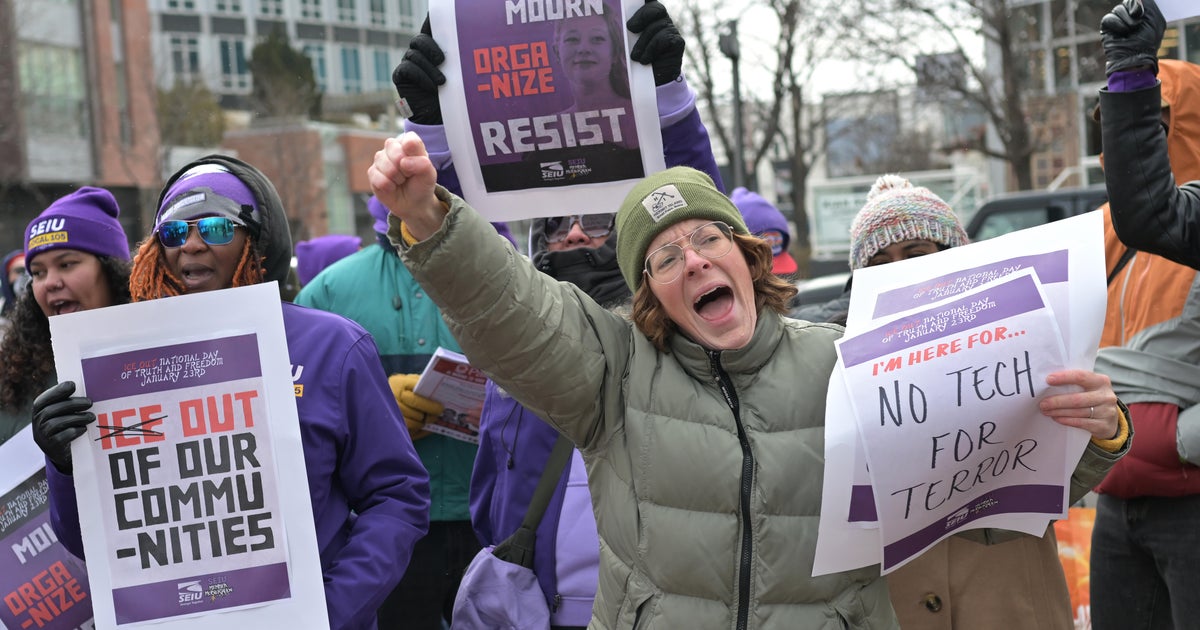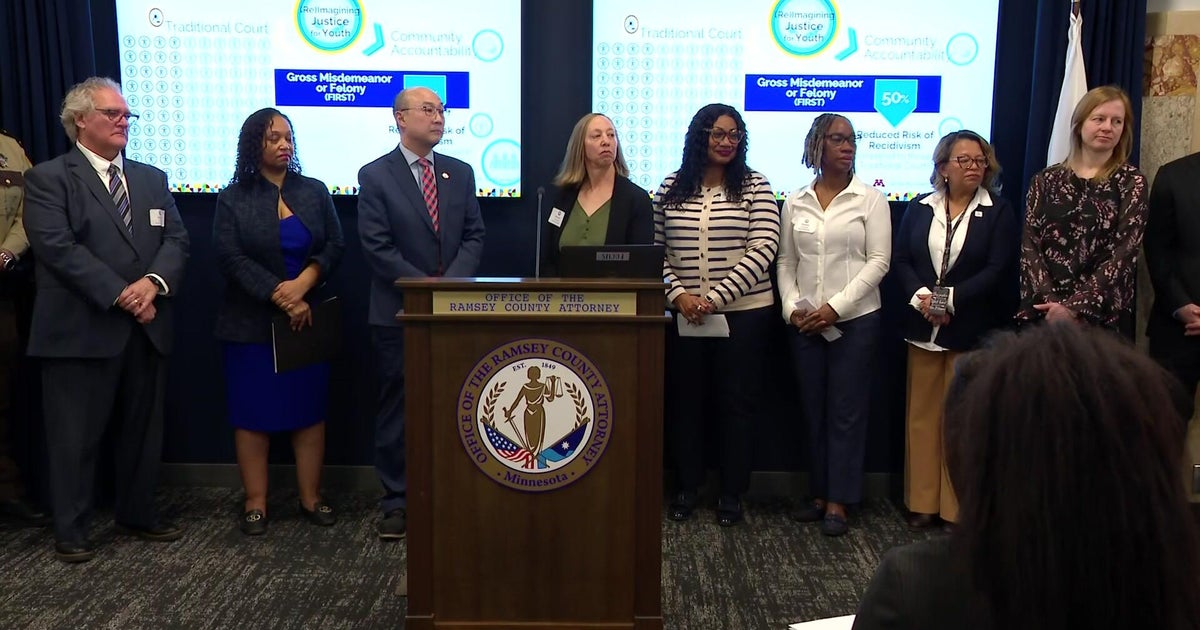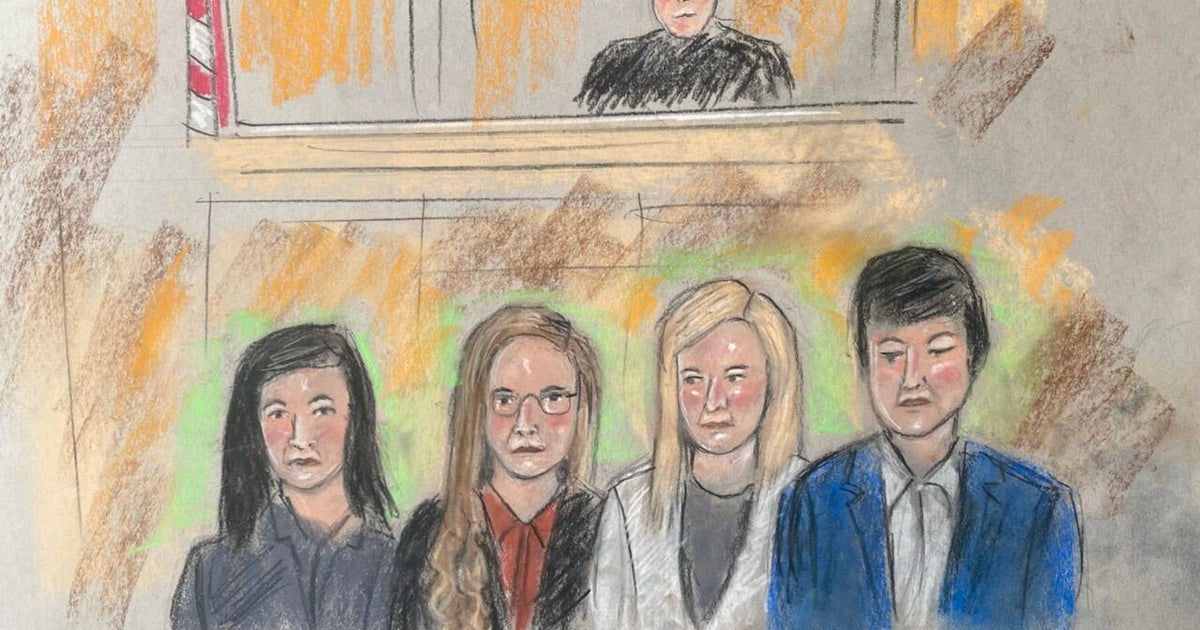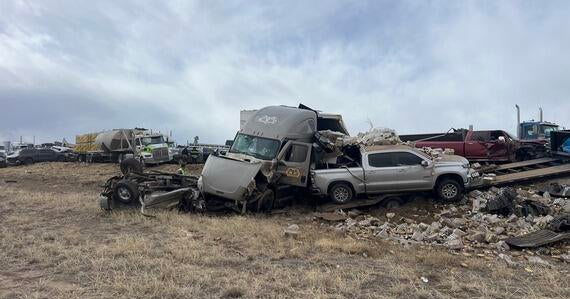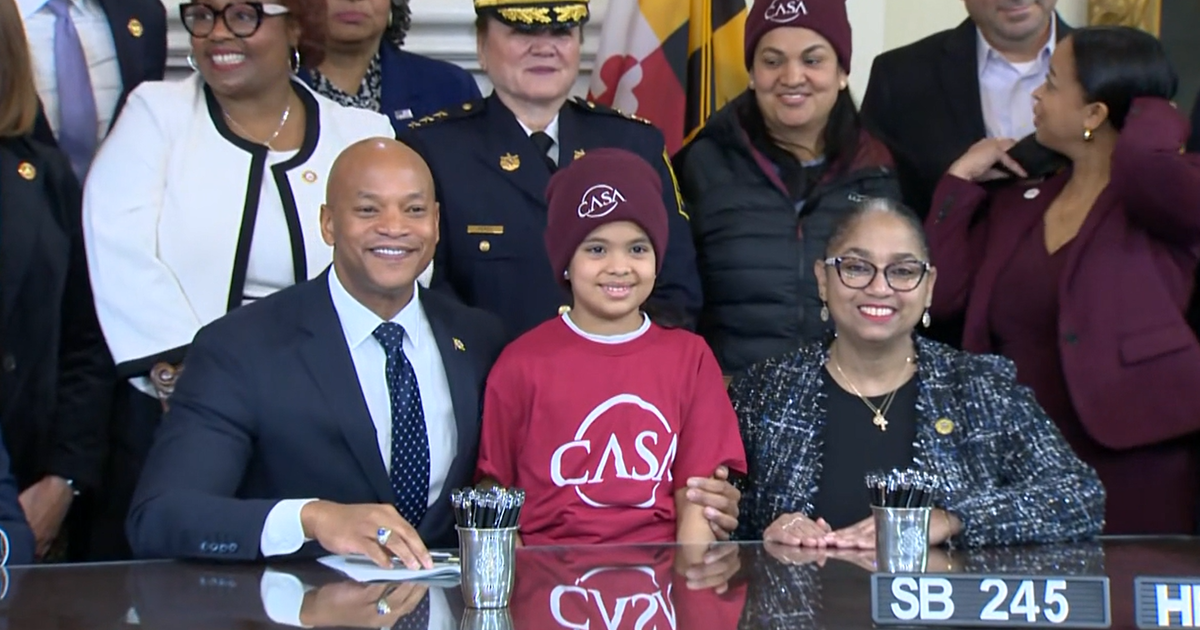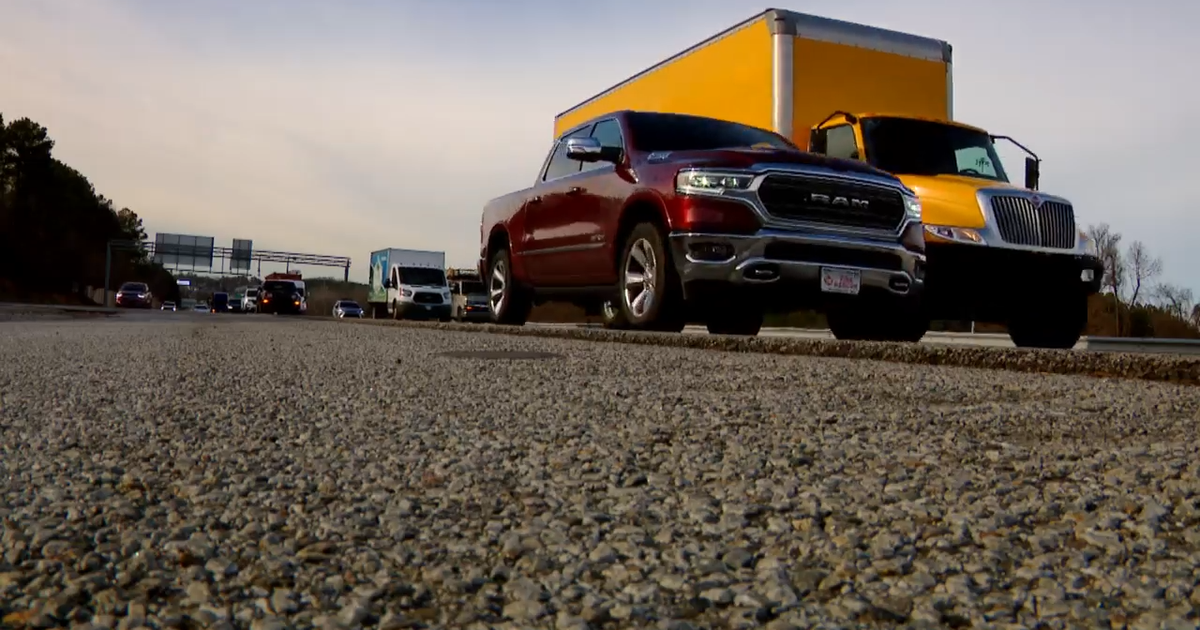UM Clinical Trials Help Develop 'Highly Effective' Moderna COVID-19 Vaccine
MIAMI (CBSMiami/AP) -- The Moderna COVID-19 vaccine, which is testing South Florida volunteers through a University of Miami trial, is proving highly effective, according to the company.
The company said Monday its vaccine appears to be 94.5% effective, according to preliminary data from Moderna's ongoing study.
A week ago, competitor Pfizer Inc. announced its own vaccine appeared similarly effective — news that puts both companies on track to seek permission within weeks for emergency use in the U.S.
The University of Miami is one of 89 sites across the country participating in the vaccine trials co-developed by Moderna and the National Institute of Allergy and Infectious Diseases.
Dr. Maria Alcaide, a professor at the school and Director of its Infectious Diseases unit and a co-investigator in the Moderna Trial, told CBS4's Peter D'Oench, "It's very promising and really exciting to see good results, not only for the Moderna trial but for other vaccine trials. We are beginning to see results in trials that show promise and that's important with the increasing infections of COVID-19. The significance of this in the U.S. is extremely important as we see the number of cases and hospitalizations to increase. There we see promise in this new vaccine and the efficacy in preventing new infections."
Moderna has said there have been no serious side effects. Some have complained of body aches and headaches.
"So far preliminary results show the vaccine is not only effective but safe with no severe adverse effects," said Dr. Alcaide. "It is in Phase 3 and needs FDA approval. The idea is to administer it first to first responders and those who are at high risk for developing COVID."
CBS4 reporter Ty Russell has been a volunteer in the UM Moderna Trial.
"When I learned about the results this morning I expected this to be a success since the government and others were pushing this and they wanted people to participate. We keep having spikes so it is time," said Russell. "We need a vaccine to be in our community to prevent other spikes. I believe this will save lives and I do see a light at the end of the tunnel especially here in South Florida."
Russell said being a volunteer has involved a lot of work.
"My first appointment was four hours long and then I had a blood test and a ton of questions. Then I had received a shot in my left and I waited 28 days and I had to go back and then I had a COVID test up my nose. You know with Moderna there are two shots."
Russell said he was compelled to be a volunteer.
"I figured that with the black community you need to know how it affects minorities as well as the impact the virus has on minorities so I wanted to participate in that way," said Russell. "I wanted to do my part and say let me save lives if I can."
The results are "truly striking," said Dr. Anthony Fauci, the U.S. government's top infectious diseases expert. Earlier this year, Fauci said he would be happy with a COVID-19 vaccine that was 60% effective.
A vaccine can't come fast enough, as virus cases topped 11 million in the U.S. over the weekend, 1 million of them recorded in just the past week, and governors and mayors are ratcheting up restrictions ahead of Thanksgiving.
The coronavirus pandemic has killed more than 1.3 million people worldwide, over 245,000 of them in the U.S.
Dr. Stephen Hoge, Moderna's president, welcomed the "really important milestone" but said having similar results from two different companies is what's most reassuring.
"That should give us all hope that actually a vaccine is going to be able to stop this pandemic and hopefully get us back to our lives," Hoge told The Associated Press. He added: "It won't be Moderna alone that solves this problem. It's going to require many vaccines" to meet the global demand.
MORE FROM CBSMIAMI.COM
Miami Man Dies After Parachute Fails To Open While Skydiving
Record Number Of Invasive Pythons Removed From Florida Everglades
COVID Positivity Rate Spiking Across South Florida: 'We Are Going Through The Surge Right Now'
The National Institutes of Health helped create the vaccine Moderna is manufacturing, and NIH's director, Dr. Francis Collins, said the exciting news from two companies "gives us a lot of confidence that we're on the path towards having effective vaccines."
But "we're also at this really dark time," he warned, saying people can't let down their guard during the months it will take for doses of any vaccines cleared by the Food and Drug Administration to start reaching a large share of the population.
Scientists not involved with the testing were encouraged by the early findings but cautioned that the FDA still must scrutinize the safety data and decide whether to allow vaccinations outside of a research study.
"We're not to the finish line yet," said Dr. James Cutrell, an infectious disease expert at UT Southwestern Medical Center in Dallas. "If there's an impression or perception that there's just a rubber stamp, or due diligence wasn't done to look at the data, that could weaken public confidence."
If the FDA allows emergency use of Moderna's or Pfizer's candidate, there will be limited, rationed supplies before the end of the year.
Both vaccines require people to get two shots, several weeks apart. U.S. officials said they hope to have about 20 million Moderna doses and another 20 million doses of the vaccine made by Pfizer and its German partner BioNTech to use in late December.
Exactly who is first in line is yet to be decided. But Health and Human Services Secretary Alex Azar said the hope is that enough doses are available by the end of January to vaccinate adults over 65, who are at the highest risk from the coronavirus, and health care workers. Fauci said it may take until spring or summer for enough for anyone who is not high risk and wants a shot to get one.
States are gearing up for what is expected to be the biggest vaccination campaign in U.S. history.
First the shots have to arrive where they're needed, and Pfizer's must be kept at ultra-cold temperatures — around minus 94 degrees Fahrenheit. Moderna's vaccine also starts off frozen, but the company said Monday it can be thawed and kept in a regular refrigerator for 30 days, easing that concern.
Another important message: Additional vaccines that work in different ways are still in testing — and despite the promising news about Moderna's and Pfizer's shots, more volunteers are needed for those studies.
Moderna's vaccine is being studied in 30,000 volunteers who received either the real thing or a dummy shot. On Sunday, an independent monitoring board examined 95 infections that were recorded after volunteers' second shot — and only five of the illnesses occurred among people given the real vaccine.
The study is continuing, and Moderna acknowledged the protection rate might change as more COVID-19 infections are detected. Also, it's too soon to know how long protection lasts. Both cautions apply to Pfizer's vaccine as well.
But Moderna's independent monitors reported some additional, promising tidbits: All 11 severe COVID-19 cases were among placebo recipients, and there were no significant safety concerns. The main side effects were fatigue, muscle aches and injection-site pain after the second dose.
The Cambridge, Massachusetts, company's vaccine is among 11 candidates in late-stage testing around the world, four of them in huge studies in the U.S.
Both Moderna's shots and the Pfizer-BioNTech candidate are so-called mRNA vaccines, a brand-new technology. They aren't made with the coronavirus itself, meaning there's no chance anyone could catch it from the shots. Instead, the vaccine contains a piece of genetic code that trains the immune system to recognize the spiked protein on the surface of the virus.
Pfizer CEO Albert Bourla tweeted that that he was thrilled at Moderna's news, saying, "Our companies share a common goal — defeating this dreaded disease."
(© Copyright 2020 CBS Broadcasting Inc. All Rights Reserved. The Associated Press contributed to this report.)

